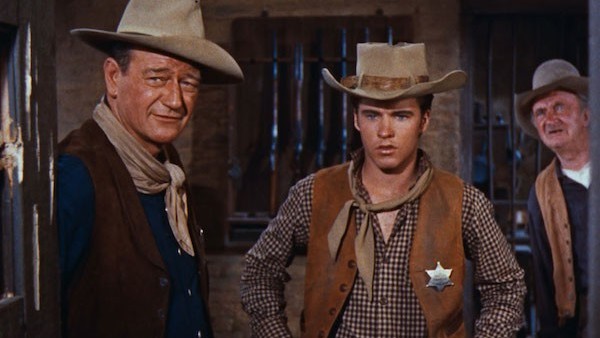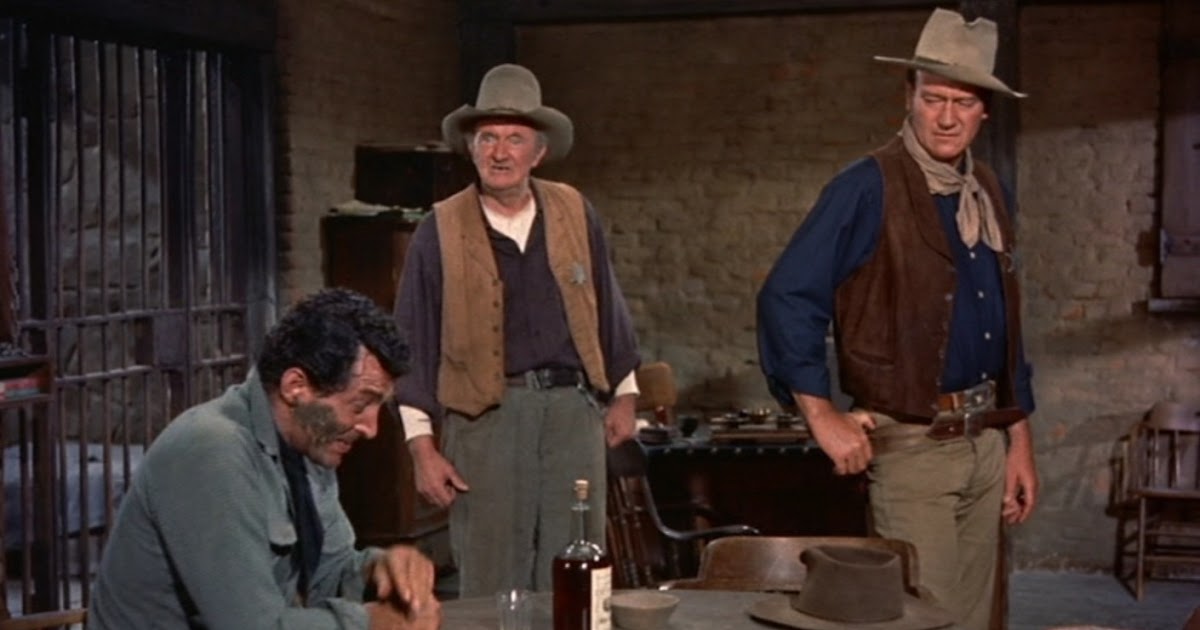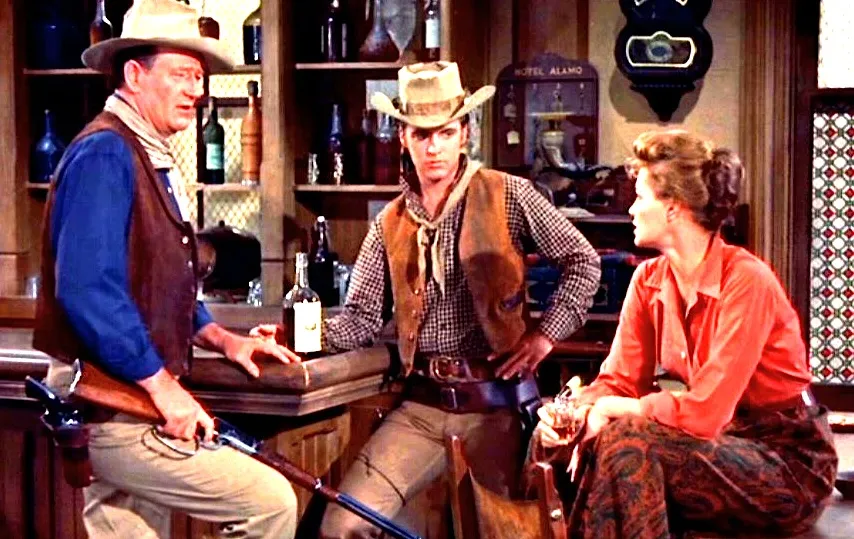As a response to High Noon, a 1952 western about a small-town sheriff who enlists the aid of his citizens in fending off a trio of vengeful outlaws, John Wayne created Rio Bravo in 1959. The earlier movie was interpreted as a critique of McCarthyism and the treachery culture fostered by the House Un-American Activities Committee’s investigations.
Wayne, a staunch Republican, called it the “most un-American thing” he had ever seen, not just for its blacklisting metaphor but also for its gall in portraying an American lawman as weak and the citizenry as cowardly.
So Wayne and director Howard Hawks, who had previously collaborated on Red River, teamed up to make a film about a sheriff who, when faced with a similar threat, refuses to ask anyone for help and only accepts support when the civilians decide on their own to join the fight. It’s a neat backstory, but the great thing about Rio Bravo is how little any of that ends up mattering. Its politics are present, but it thrives on its feel-good vibe and nonpartisan values of friendship, love, and the power of redemption. Wayne plays John T. Chance, an aging sheriff who, in the film’s bravura, wordless opening sequence, locks up the brother of a local cattle baron for murder.

When the baron catches wind of the arrest, he and his henchmen set about trying to break the killer out of jail. Initially, Chance’s only backup is a disabled deputy, played by the reliable Walter Brennan. But friends old and new show up: his drunken former deputy Dude (Dean Martin), young gunslinger Colorado (Ricky Nelson), and a fast-talking lass (Angie Dickinson) whose stagecoach has broken down. They all want to help. Chance turns them down until they each refuse to take no for an answer.
That’s the plot, but the pleasures of Rio Bravo are in watching its characters unfold to each other like desert flowers. In between the well-staged shoot-outs, there are long, beautiful stretches that hinge on these people simply enjoying each other’s company and, in one case, falling in love. It’s a hangout movie as much as a western. Dickinson brings the energy of a screwball comedy to her scenes with Wayne, who, instead of trying to keep up the pace, mostly grins sheepishly at her. We can’t blame him. Dickinson is radiant, and Hawks’ camera captures her brilliance.

Wayne smirks, Brennan squeals, and Nelson bats his eyes for the teenage girls in the audience, but it’s Martin, as the anguished alcoholic trying to kick his habit, who carries the film’s emotional heft. With his twitches and shallow breathing, Martin, a formidable boozer in real life, captures the frayed nerves of a man in withdrawal, but he also finds the nuances of a man trying to build a new life while still burying his old one. It’s a classic redemption arc, but Martin’s performance feels fresh and alive, while serving as a steep revision of the western genre. In the dusty towns of cinema’s Old West, the cowboys throw back tequila like it’s water, but Rio Bravo uncovers a little more reality in those saloons than the genre typically allows.
No matter how much realism you inject, though, most westerns still reflect the spirit of little boys running around their front yard with cap guns and plastic spurs on their boots. With its roster of heroes who love each other with the innocence of pre-pubescents, and a Technicolor palette so rich it almost feel animated, Rio Bravo is one of the most purely enjoyable westerns ever made, and that’s before you get to “My Rifle, My Pony, and Me,” the third-act number crooned by Martin and Nelson in a quiet jailhouse moment before the final siege begins. With Wayne and Brennan grinning along, the world-class singers duet in perfect harmony on a delightful cowboy ballad. It’s pure romantic bliss that feels about as far away from a political statement as you could imagine. Take that, High Noon.
